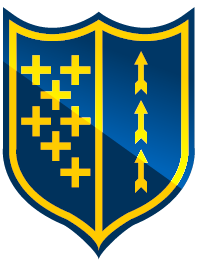Spelling
“Words are, of course, the most powerful tool we have.”
English Curriculum Rationale - Implementation & Impact : Spelling
Implementation
Spelling in the Federation has been recognised as a priority and an area in which many children struggle. We recognise the importance of teaching children the knowledge needed for them to become competent spellers. Therefore, the daily teaching of writing focusses on the development of spelling skills. Writing ideas down fluently relies upon effective transcription – the relationship between phonics, word structure (morphology) and spelling structure (orthography).
- The basis of our teaching is showing pupils how to understand the relations between words, how to understand the nuances of meaning, and how to develop their understanding of, and ability to use, figurative language.
- Children will be taught how to work out and clarify the meaning of unknown words and words with more than one meaning.
- Children are encouraged to use their knowledge of grapheme phoneme correspondence when making choices about how to spell unknown words.
- In order to support children with the spelling of root words, we revisit, reinforce and draw upon their prior knowledge of phonics through reading and spelling.
- Spelling sessions include an opportunity to revisit previous learning, acquire new learning about spelling rules and to practice and apply this learning.
- All teachers follow the statutory requirements connected to their year group, covered by the LA spelling plans.
- Spellings are taught through our quality text-based English learning lessons, where the text is used as a vehicle to teach spelling rules and conventions.
- Basic skills sessions cover a weekly spelling rule and children are provided with additional support when necessary.
- Vocabulary linked to the wider curriculum, technical words and new language is taught through English lessons and subject-specific lessons.
- Weekly spellings are sent home from a set programme to ensure full coverage of spelling patterns and tricky words.
- Pupils are taught how to use dictionaries from Year 1 and are encouraged to use them in any writing lessons.
- Half-termly assessments in spelling from the LA help teachers to recognise areas for development and enable them to plug the gaps.
Impact
We believe our children will:
- Use the knowledge and strategies taught to become confident and accurate spellers.
- Have a clear understanding of spelling conventions and patterns.
- Use a dictionary to correct misspelt words.
- Become more confident spelling which leads to more fluent writing.
Primary National Curriculum - Word Lists
Spelling is taught as part of a planned programme following the requirements of the National Curriculum 2014.
Reception, Year 1 and Year 2 have a daily session of phonics. Phonic knowledge should continue to underpin spelling after Key Stage 1.
In Year 2 – Key Stage 2, children have regular explicit spelling sessions with weekly spellings being closely linked to phonic knowledge, spelling patterns and rules.
- All classes have a set of spelling activities to support regular opportunities for children to practise learning spellings.
- Spellings are linked to the National Curriculum word lists for each year group.
- Children are taught to look for common letter strings, patterns in words and spelling rules.
- Where possible, children are encouraged to identify their own spelling errors and edit accordingly.
- Sound out words phonemically and by syllables.
- Draw on analogies to known words, roots, derivations, word families, morphology and familiar spelling patterns.
- Identify words which pose a particular challenge and learn them by using mnemonics, multisensory re-enforcement and memorising critical features.
- Using a dictionary, find words beyond the initial letter.
- Make effective use of RWI speed sound charts or spell checker to identify alternate graphemes.
Below are the word lists for each year group taken from the National Curriculum.
